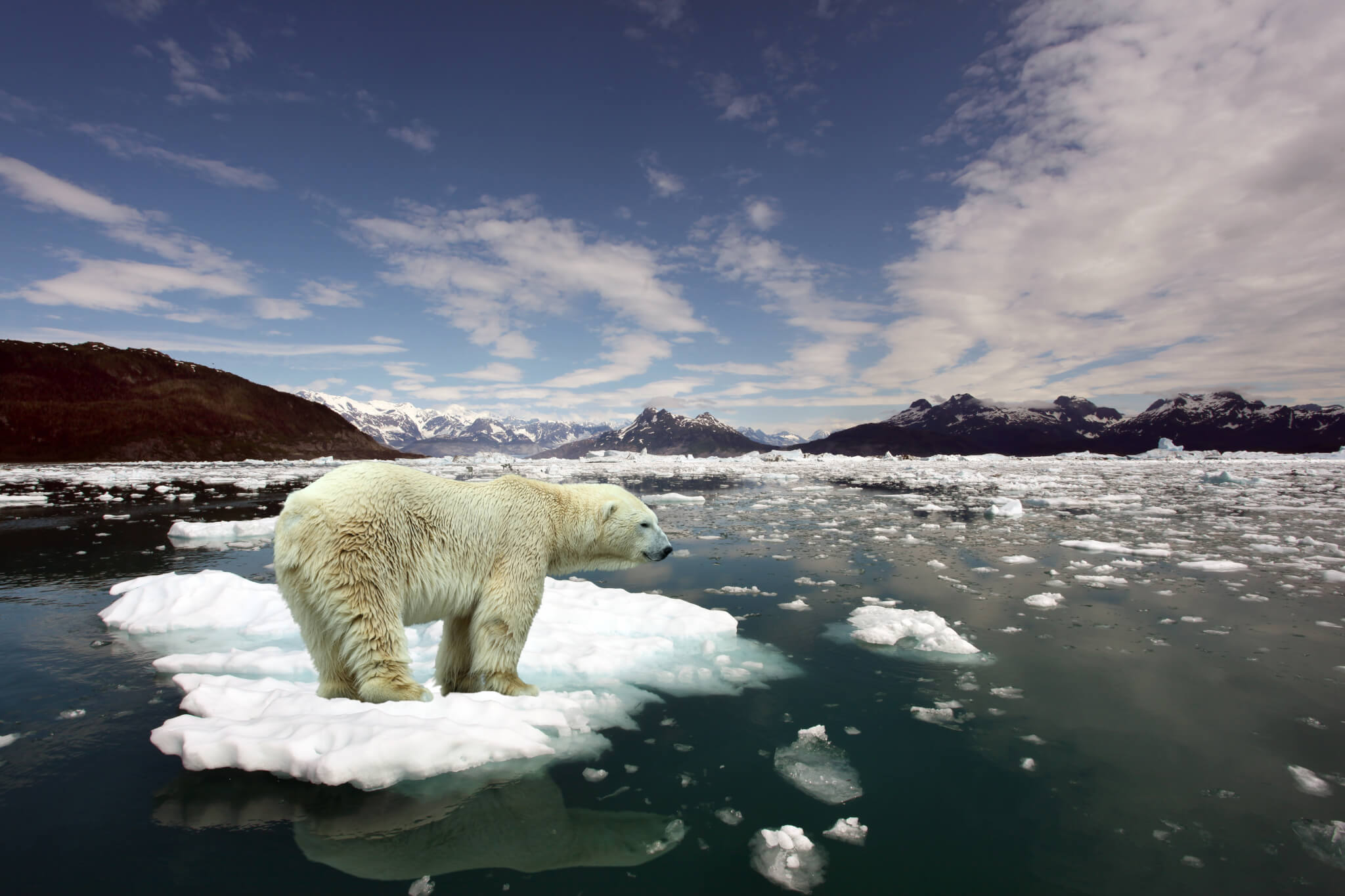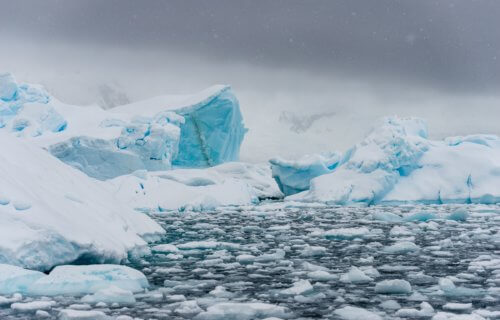EXETER, United Kingdom — Extreme weather events across Antarctica, like ocean heatwaves and major ice loss, are almost certain to become “the new normal” in the years to come as our planet continues to feel the effects of climate change. That’s the sobering conclusion of researchers from the University of Exeter. Even worse, study authors warn that what will happen in Antarctica is likely just the tip of the iceberg.
The research team reviewed a comprehensive set of evidence pertaining to extreme events in Antarctica and the Southern Ocean, including weather, sea ice, ocean temperatures, glacier and ice shelf systems, and the biodiversity on land and sea. Ultimately, the investigation led them to conclude Antarctica’s fragile environments “may well be subject to considerable stress and damage in future years and decades.” Researchers are now calling for urgent policy action.
“Antarctic change has global implications,” says Professor Martin Siegert, the study’s lead author, in a university release. “Reducing greenhouse gas emissions to net zero is our best hope of preserving Antarctica, and this must matter to every country – and individual – on the planet.”
Prof. Siegert adds the rapid changes now being seen in Antarctica could potentially place many countries in breach of an international treaty.
“Signatories to the Antarctic Treaty (including the UK, USA, India and China) pledge to preserve the environment of this remote and fragile place,” Siegert explains. “Nations must understand that by continuing to explore, extract and burn fossil fuels anywhere in the world, the environment of Antarctica will become ever more affected in ways inconsistent with their pledge.”

Study authors worked to consider the vulnerability of Antarctica across a range of extreme events. This was done in an attempt to better understand the causes and likely future changes, especially in light of a series of recent extremes. For example, the world’s largest recorded heatwave (38.5°C above the mean) just took place in East Antarctica in 2022. Also, winter sea ice formation is currently at its lowest point ever on record.
Extreme events can also impact biodiversity. For instance, high temperatures have been linked to seasons with lower krill numbers, which can lead to breeding failures among krill-reliant predators – as evidenced by many dead fur seal pups on beaches.
“Our results show that while extreme events are known to impact the globe through heavy rainfall and flooding, heatwaves and wildfires, such as those seen in Europe this summer, they also impact the remote polar regions,” comments study co-author Professor Anna Hogg from the University of Leeds.
“Antarctic glaciers, sea ice and natural ecosystems are all impacted by extreme events. Therefore, it is essential that international treaties and policy are implemented in order to protect these beautiful but delicate regions.”
“Antarctic sea ice has been grabbing headlines in recent weeks, and this paper shows how sea ice records – first record highs but, since 2017, record lows – have been tumbling in Antarctica for several years,” concludes Dr. Caroline Holmes, a sea ice expert at British Antarctic Survey. “On top of that, there are deep interconnections between extreme events in different aspects of the Antarctic physical and biological system, almost all of them vulnerable to human influence in some way.”
As more and more Antarctic sea ice retreats, new areas will become accessible by ship. Thus, the study authors say careful management will be required to protect vulnerable sites.
The study is published in the journal Frontiers in Environmental Science.
You might also be interested in:
- Summer 101: How can you protect yourself against deadly heat-related illnesses?
- Megafires in the Arctic? Global warming driving massive increase in fires in frozen regions
- Broccoli going extinct? Scientists reveal why global warming turns it into cauliflower


Well they say look after nature and the earth will take care of you. Well humans
Are selfish and creedy they poison our ocean and lakes with pollution and waste
Destroy the atmosphere with toxins, then have the hide to say there is no such thing as climate change . Gut downs our beautiful trees in the largest most important Forrest on earth. Then they wonder why the ice is melting and polar bears are dying of starvation. And that’s only part of it.
Couldn’t help noticing the photo of the polar bear on ice. Should I also be concerned about the penguins in the Arctic?